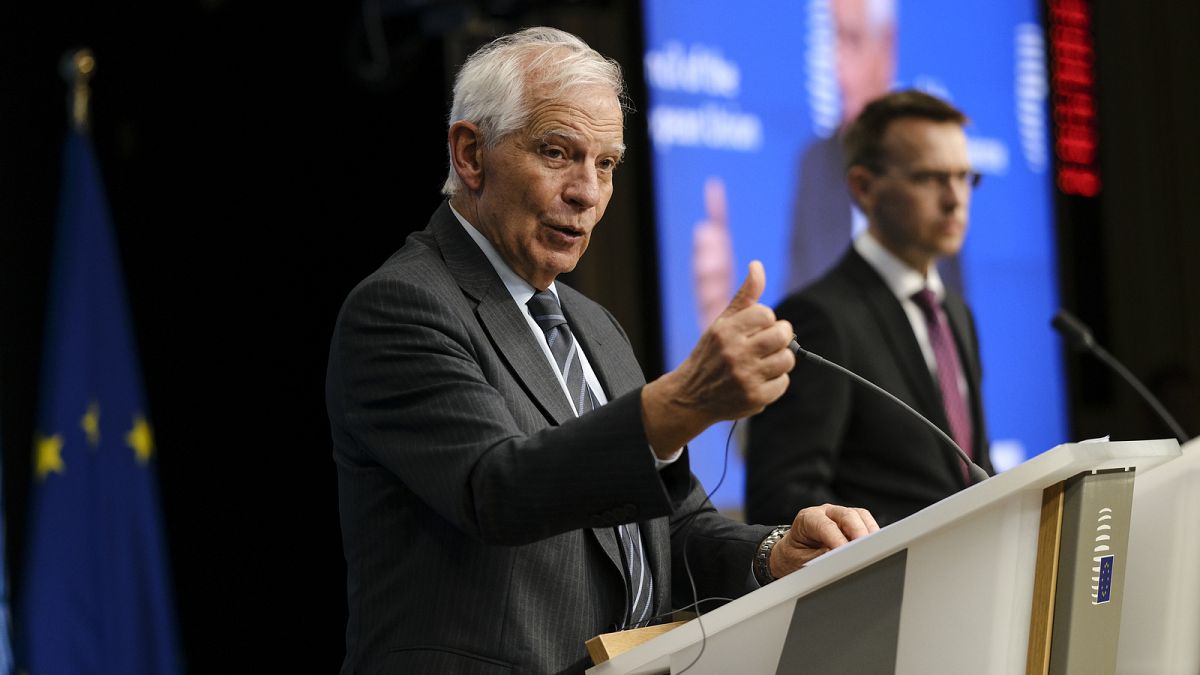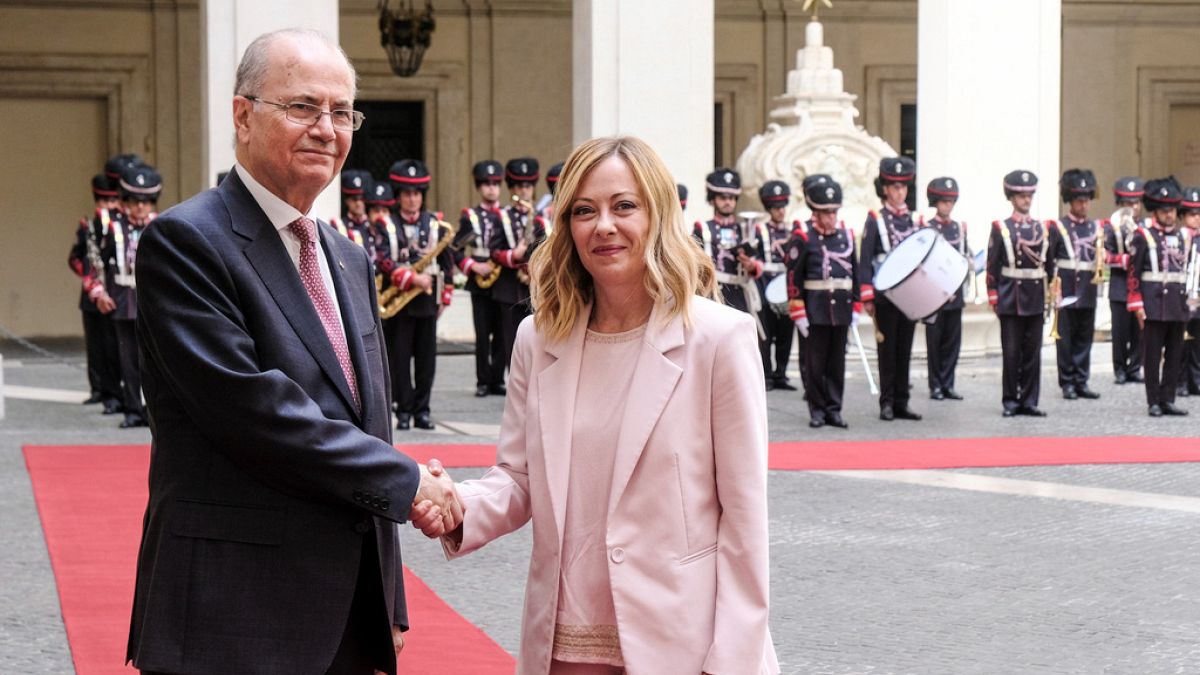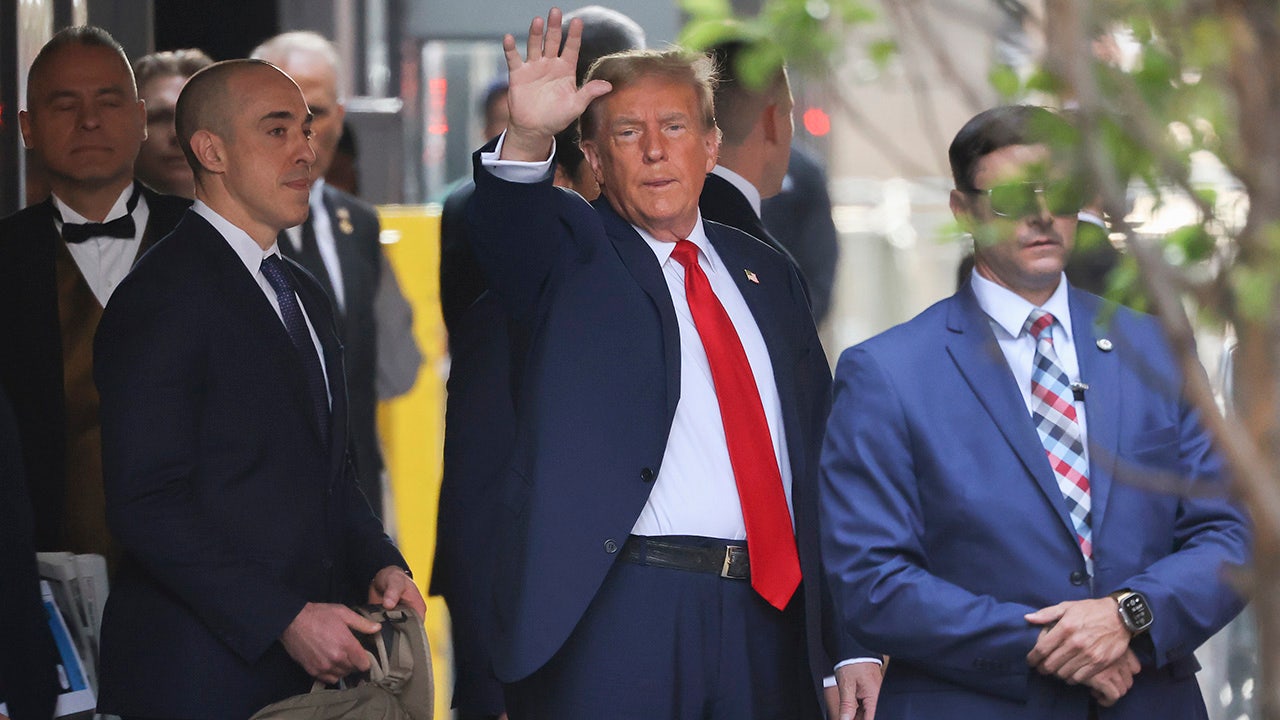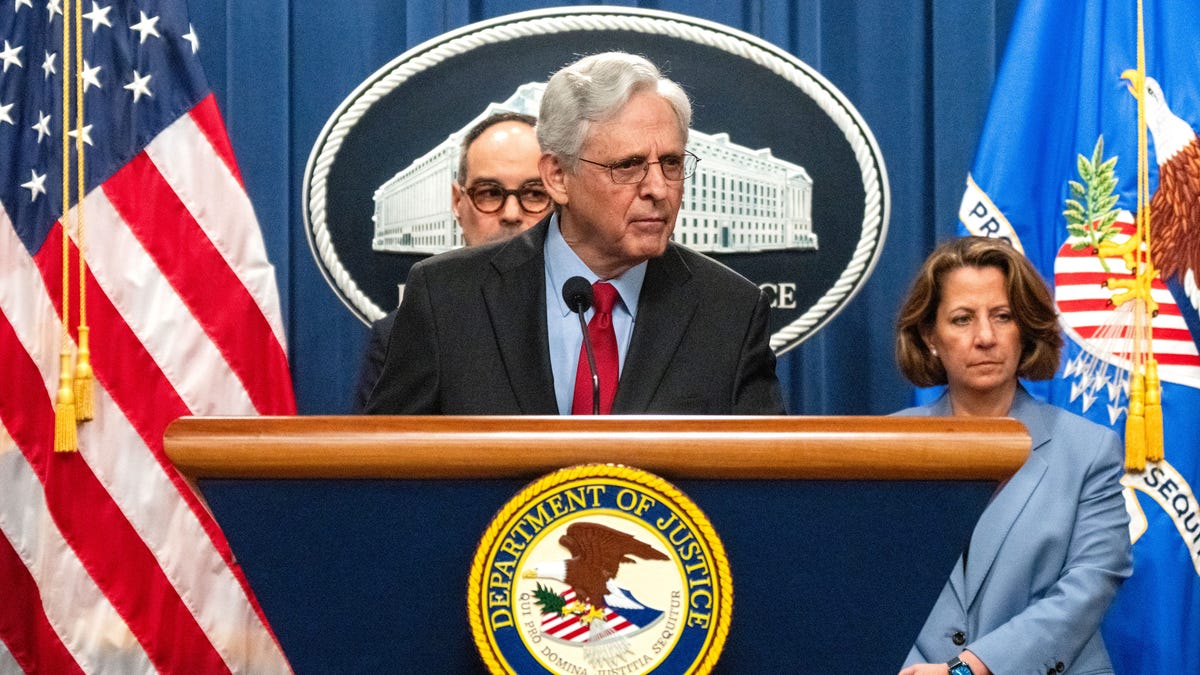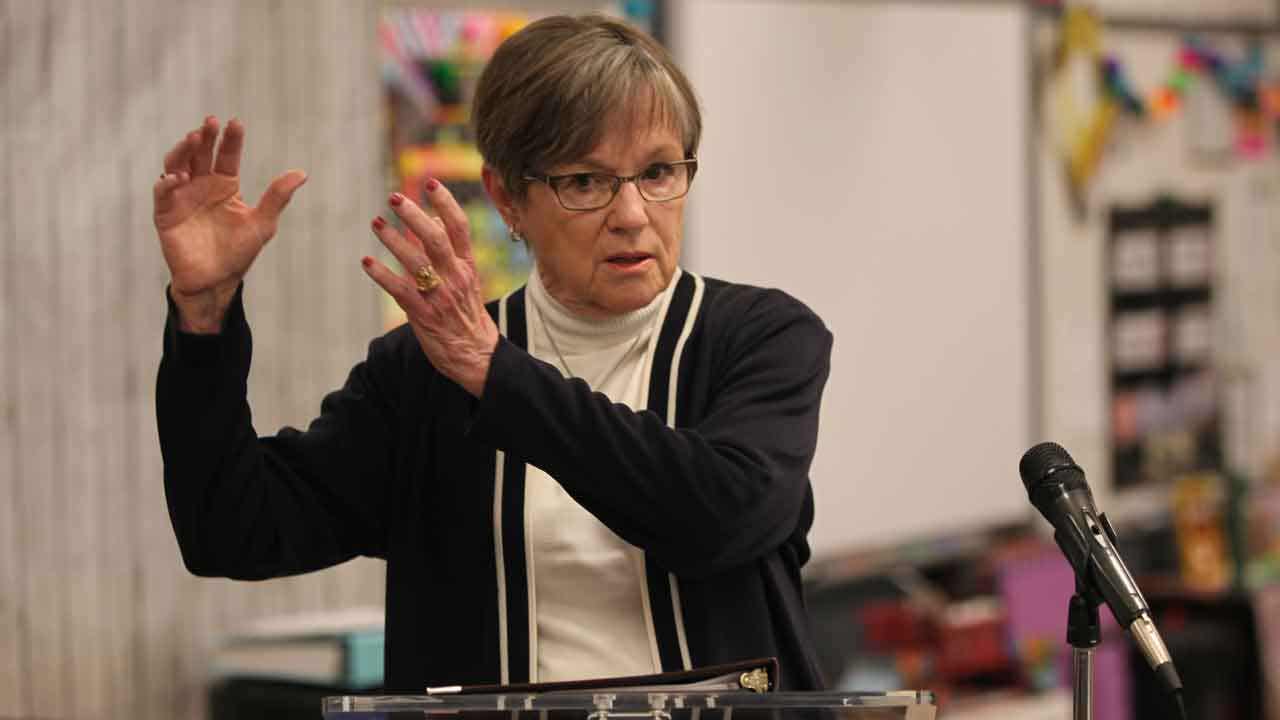World
Von der Leyen sets out five principles for Gaza’s post-war future
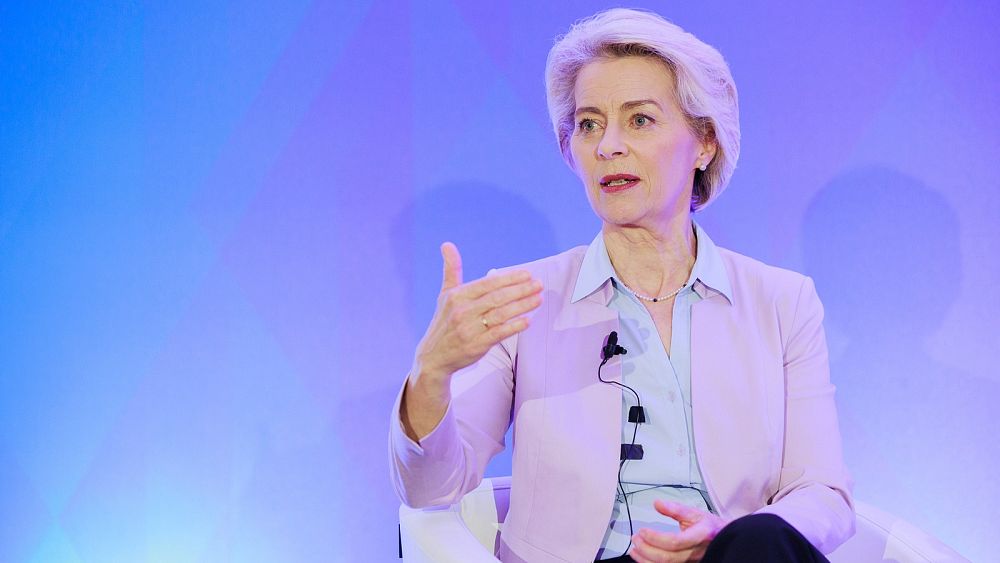
Ursula von der Leyen has proposed five “basic principles” to guide the future of the Gaza Strip once the Israel-Hamas war comes to an end.
The principles, which are anchored in the perspective of a two-state solution, include the end of Hamas rule over the densely populated enclave and the lifting of the strict blockade imposed by Israel and Egypt since 2007.
The European Union and the United States consider Hamas a terrorist organisation and have no formal contact with the group.
“Hamas has continued to build up its arsenal, while the economy of Gaza has collapsed, so it’s just the opposite of what we wanted. 70% of young people in Gaza are jobless. And this can only lead to more radicalisation,” the president of the European Commission said on Monday morning during the annual conference of EU Ambassadors in Brussels.
“Any future Palestinian State must be viable, also from an economic point of view.”
The five principles for Gaza proposed by von der Leyen are:
- No safe haven for terrorists.
- No Hamas-led government.
- No long-term Israeli security presence.
- No forced displacement of Palestinians.
- No sustained blockade.
“All of this may look overly ambitious, as the war still rages on,” von der Leyen admitted. “But we must spare no effort to keep the hope alive. To find a lasting solution, based on two states, living side by side in peace and security.”
Von der Leyen’s comments come as fighting intensifies in the region.
Israel has vowed to “demolish” Hamas after the militant group launched a series of unprecedented attacks in Israel on 7 October in which more than 1,400 people were killed.
Since then, the Israeli Defence Forces have pounded the Gaza Strip with heavy bombardment, causing a severe humanitarian crisis. According to the Hamas-run Health Ministry of Gaza, over 9,700 have been killed, including 4,800 children.
The European Union has adopted a joint position supporting Israel’s right to self-defence “in line with international law” and calling for “humanitarian corridors and pauses” to accelerate deliveries of emergency aid, such as food, water and fuel, into Gaza.
But the plea, also echoed by Washington, has failed to effect change on the ground and appears to ring hollow as the number of civilian casualties rises to new heights.
“The humanitarian situation is dire. The death toll and the suffering of Palestinian civilians is tragic,” von der Leyen said on Monday. “Our hearts bleed at the images of small children pulled out from under the rubble.”
“While Israel has the right to fight Hamas, it is also essential that it strives to avoid civilian casualties, and to be as targeted as possible,” she went on. “Because every human life matters, be it Israeli or Palestinian.”
The Commission chief announced a further €25 million in humanitarian aid for Gaza, bringing total funding for this year to €100 million, and said her executive was working on a “maritime corridor” from Cyprus to complement the Rafah crossing, the only route currently available to bring in emergency supplies.
The speech represents a new tone for von der Leyen, who was criticised in the first days of the conflict for adopting a position seen as overly one-sided in favour of Israel, and reflects the growing concern in Brussels over the mounting death toll in the region.
“The size and scale of today’s events require that we act and think strategically. Even and especially when the fog of war is thick, and emotions run high,” von der Leyen told ambassadors, referring to the conflicts in Ukraine, the Caucasus and the Sahel.
Borrell’s stark warning
Josep Borrell, the EU’s foreign policy chief, was also present at the event and used the opening address to share his frank reflections about the Israel-Hamas war, which he described as “the outcome of a collective political and moral failure” dating back to the never-realised 1993 Oslo Accords.
“This is the last chance for the two-state solution. If we don’t succeed, we will be definitely in a spiral of violence and mutual hate for generations,” Borrell said.
In the diplomat’s view, the Israeli-Palestinian conflict should not be described as a “religious” or “ethnic” dispute but as a national problem of “two people who have an equivalent right to exist on the same land” and need to find an effective way to share it.
“There’s no military solution to the conflict. Without a political strategy, no one (can) win a battle against terrorism. You can crash people. But everywhere we have to look for political solutions,” he said. “Even if Hamas is uprooted in Gaza. This will not solve the problem of Gaza, not the let alone the West Bank problem. So overreactions are always understandable, but never effective.”
Borrell urged Israel “not to be blinded by rage” and cautioned that “ignoring the human costs could ultimately backfire” against the country.
The foreign policy chief then drew a parallel between the Israel-Hamas war and Russia’s invasion of Ukraine to warn that the bloc’s reaction to the former might dent its response to the latter and be perceived as a “contradiction” by the Global South.
“Both wars are different, completely different in their causes and consequences. But let’s be frank, the crisis in the Middle East is already having a lasting impact (on) our policy in Ukraine,” Borrell said.
“Our international support for Ukraine may erode in the light of what is being seen as the practice of double standards.”
In a direct appeal to the staff members in the audience, Borrell said EU ambassadors should “never make the mistake of framing global issues in terms of the West against the rest,” saying doing so would be “devastating” for the bloc’s image around the world.
“We are not the outpost of the Western world,” Borrell said. “This is the alpha and omega of my message: we are the keepers of global and shared values based on the United Nations charter. Everywhere. Every time.”

World
Viggo Mortensen Asked Peter Jackson if He Could Use Aragorn’s Sword in a New Movie, Says He’d Star in New ‘Lord of the Rings’ Movie Only ‘If I Was Right for the Character’

Viggo Mortensen revealed in an interview with GQ UK magazine that he used Aragorn’s iconic sword Andúril from “Lord of the Rings” in his latest movie, “The Dead Don’t Hurt.” Mortensen wrote and directed the 19th century Western, in which he stars as a Danish immigrant separated from his love (Vicky Krieps) during the Civil War.
For one fantasy sequence in the film, Mortensen asked his “Lord of the Rings” director Peter Jackson if he had his permission to use Aragorn’s sword again on screen. Mortensen played the character in Jackson’s original “Rings” trilogy and kept the sword after production wrapped.
“We had everything for this sequence with a knight. We had found this great, spirited horse, the right kind of saddle, and we made a medieval kind of blanket, and we had the costume for the knight,” Mortensen explained. “Everything was right, and then I said, well, we should have a sword. And I did look and there were some good ones and I thought, well, it might be kind of good to use [Aragorn’s sword] that I had because it’s really good. But I knew I would have to ask permission because I’m sure somebody would notice it, even if you only see it for a few seconds, it’s not really essential to the scene and certainly not to the movie, it’s just something in passing that you either see or you don’t.”
“I did ask Peter Jackson if he’d be all right with it, and he said, ‘Well, is it very important in the story?’ I said, no, it’s not, actually,” Mortensen continued. “You hardly notice it, but somebody will, probably. He said it was okay with him but that I should ask the movie company. So I contacted them and they were fine with it. They realized it wasn’t essential, it wasn’t going to draw a lot of attention to itself. And they were very nice about it, and they gave us permission. That’s why we did it, just because it seemed right. It was kind of a last-minute accident.”
Jackson is returning to Middle-Earth as the producer of a new “Lord of the Rings” movie that is going to be directed by Gollum actor Andy Serkis. The movie, “The Lord of the Rings: The Hunt for Gollum,” is being eyed for a 2026 theatrical release. Would Mortensen return as Aragorn? He doesn’t seem opposed, but the story would have to make sense.
“I don’t know exactly what the story is, I haven’t heard,” he said. “Maybe I’ll hear about it eventually. I like playing that character. I learned a lot playing the character. I enjoyed it a lot. I would only do it if I was right for it in terms of, you know, the age I am now and so forth. I would only do it if I was right for the character. It would be silly to do it otherwise.”
“The Dead Don’t Hurt” premiered at the Toronto International Film Festival last year. The film is opening in theaters May 31. Head over to GQ UK’s website to read Mortensen’s interview in its entirety.
World
Nigeria's new anthem, written by a Briton, sparks criticism after a contentious law is passed

Nigeria adopted a new national anthem on Wednesday after lawmakers passed a law that replaced the current one with a version dropped nearly a half-century ago, sparking widespread criticism about how the law was hastily passed without much public input.
President Bola Tinubu’s assent to the law comes a day after it was approved by both chambers of Nigeria’s National Assembly, which is dominated by the governing party. The federal lawmakers introduced and passed the bill in less than a week, an unusually fast process for important bills that usually take weeks or months to be considered.
MEGHAN MARKLE STIRS CONTROVERSY DURING NIGERIA TRIP BY WEARING DRESS CALLED ‘WINDSOR’
The “Arise, O Compatriots” anthem being replaced had been in use since 1978, when it was introduced by the military government. The anthem was composed at a time when the country was reeling from a deadly civil war and calls on Nigerians to “serve our fatherland with love and strength” and not to let “the labor of our heroes past (to be) in vain.”
Nigeria’s new President Bola Ahmed Tinubu, inspects honor guards after taking an oath of office at a ceremony in Abuja, Nigeria, on May 29, 2023. Nigeria adopted a new national anthem on Wednesday, May 29, 2024, after lawmakers passed a law that replaced the current one with a version dropped nearly 50 years ago, sparking widespread criticism about how the law was hastily passed without much public input. (AP Photo/Olamikan Gbemiga)
The new version that takes immediate effect was first introduced in 1960 when Nigeria gained independence from Britain before it was dropped by the military. Titled “Nigeria We Hail Thee,” it was written by Lillian Jean Williams, a British expatriate who was living in Nigeria at the time.
The new anthem was played publicly for the first time at a legislative session attended by Tinubu, who marked his one year in office as president on Wednesday.
Many Nigerians, however, took to social media to say they won’t be singing the new national anthem, among them Oby Ezekwesili, a former education minister and presidential aspirant who said that the new law shows that the country’s political class doesn’t care about the public interest.
“In a 21st Century Nigeria, the country’s political class found a colonial National Anthem that has pejorative words like “Native Land” and “Tribes” to be admirable enough to foist on our Citizens without their consent,” Ezekwesili posted on X.
Supporters of the new anthem, however, argued it was wrong for the country to have adopted an anthem introduced by the military.
“Anthems are ideological recitations that help the people to be more focused. It was a very sad development for the military to have changed the anthem,” public affairs analyst Frank Tietie said.
World
Could a left-nationalist party emerge in the next EU parliament?

Radio Schuman is your new go-to podcast to spice up your weekday mornings with relevant news, insights, and behind-the-scenes stories from Brussels and beyond.
It’s May 30 and it’s a week to go before the European elections. Across Europe, people are bracing for a surge of support for the far-right in the European Parliament. But what of the far left? It’s a small but loud faction, drawing the support of many young voters. It’s also the only group on the left of the political spectrum that is expected to gain seats.
We also discussed the global race for AI and the European Commission’s attempts to remain competitive.
This podcast is also produced by the journalist Eleonora Vasques and the sound engineer Zacharia Vigneron. Music by Alexandre Jas.
Additional sources • Zacharia Vigneron
-

 Culture1 week ago
Culture1 week agoFrom Dairy Daddies to Trash Pandas: How branding creates fans for lower-league baseball teams
-

 World1 week ago
World1 week agoPanic in Bishkek: Why were Pakistani students attacked in Kyrgyzstan?
-

 News1 week ago
News1 week agoRed Lobster files for bankruptcy after missteps including all-you-can-eat shrimp
-

 News1 week ago
News1 week agoThe states where abortion is on the ballot in November : Consider This from NPR
-

 Politics1 week ago
Politics1 week agoMichael Cohen swore he had nothing derogatory on Trump, his ex-lawyer says – another lie – as testimony ends
-

 Movie Reviews1 week ago
Movie Reviews1 week agoMai Movie Review: Emotionally powerful lead performances in this sensitive and heart-breaking romantic film
-

 Politics1 week ago
Politics1 week agoAnti-Israel agitators interrupt Blinken Senate testimony, hauled out by Capitol police
-

 News1 week ago
News1 week agoCity of Kyle falls short of ‘Kyle’ world record

